Open This Publication
Abstract in English:
Due to factors of a changing, multinational labour market and the pandemic situation, shared and mobile offices are more requested than ever before. We set out to explore Lisbon’s coworking communities, as well as the most beneficial resources available to foster and support flexible work practices worldwide.
The goals of this research are: 1) to seek a clear definition of coworking and networks; 2) to understand the role of social capital, collaboration, and organizational leadership within coworking communities; 3) to identify community factors, motivations, and user preferences that allow business leaders and customers to make more suitable decisions regarding their unique contexts.
Therefore the topic has been approached from a broad to a narrow perspective, which includes social, network, and leadership theories from Bourdieu (1986) Putnam (1993; 1995), Latour (1996; 2005; 2007), and Goleman (2000; 2004), as well as recent coworking studies like Gandini (2015), Weijs-Perrée et al. (2019), Orel & Dvoulety (2020). After considering case-study examples, key findings were made to discover the motivations and tools of the professionals at CW facilities. Based on the identified opportunities, suggestions were made to develop their communities and social performances. Considering the diverse background of scientific possibilities, the empirical part belongs to the field of interpretivism, containing a mixed-method methodology: A survey of 102 Lisbon’s co-workers has been conducted, followed by semi-structured expert interviews of 9 community leading roles. Factors of collaborative networks, innovation, and leadership structures stood out as the focus of the work. The results should generate useful and credible outcomes in order to uncover new opportunities for communities’ implementation. Discovered member preferences can be seen as a contribution of already applied theories and knowledge of the status quo in Lisbon. Prioritizing a set of working & environmental assets, for example, professional networking, and the identification of different member types represents an extension to proceeded case studies like Back & Josef (2016), Fuzi (2015), or Kyrö & Arto (2015). Because its outcome could not be analysed concerning CW locations specifically, it also proposes challenges and opportunities for future research.
Open Access? Yes
Publication Year 2020
Publisher Universidade Católica Portuguesa
English | Discipline Social Science
